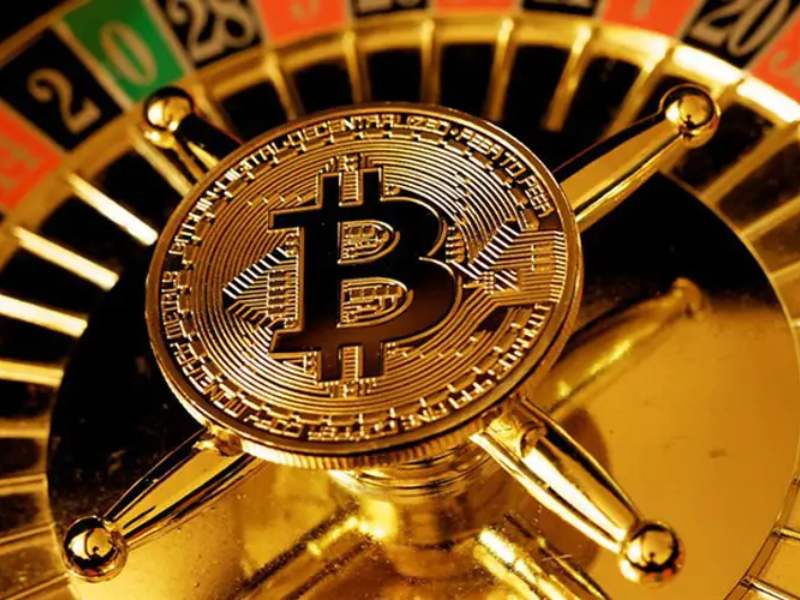Online Gambling in the Nordic Region: A Primer
The Nordic region boasts a substantial engagement in gambling activities, with 60-80% of citizens reportedly participating in some form of gambling over the last 12 months. This widespread interest has led to a growing popularity of online casinos in countries such as Norway, Denmark, Sweden, Finland and Iceland.
The distinct betting histories and regulatory frameworks of each country have played an integral role in shaping the development and appeal of online casinos in the region. As the digital gambling landscape continues to evolve, the Nordic countries are witnessing a transformative shift in consumer preferences, influencing the trajectory of online casinos within this dynamic and diverse gaming environment.
Norway's Gambling Landscape
Navigating the landscape of Norwegian gambling can be challenging and is characterized by strict regulations and limited offerings from state-owned entities, such as Norsk Tipping and Norsk Rikstoto. Traditional casino games are notably absent from these channels; however, the persistent appeal of gambling led to the emergence of illicit "hjulspill" establishments, which faced crackdowns from authorities.
The advent of offshore online casinos provided accessibility, enabling Norwegians to enjoy casino games from home, with a user penetration rate of 5.3% in 2024. In this intricate environment, online casino comparison sites (reference: sikrebettingsider.com/casino) prove invaluable, offering assistance to gamblers by providing insights and facilitating informed choices amid the complexities of Norwegian gambling. These comparison sites serve as indispensable tools, aiding players in navigating the diverse online gambling options available to them.
Denmark's Progressive Approach to Gambling
Denmark stands out in its approach to gambling regulation, with the Danish Gambling Authority (Spillemyndigheden) playing a central role in overseeing both land-based and online gambling. Rigorous licensing processes ensure compliance with strict regulatory standards, fostering a flourishing online casino industry projected to expand by 3.48% in the next four years, equating to a market volume of US$1.33bn by 2028.
Denmark's progressive stance has facilitated a diverse selection of licensed online casinos offering a wide array of games and secure payment options. Under this regulatory framework, player protection is prioritized, ensuring fair and transparent operations in the industry. The country's high internet penetration rate and tech-savvy population further contribute to the popularity of online casinos; this progressive framework establishes Denmark as a model for effective and responsible gambling regulation in the international arena.
Sweden's Transition to a Liberalized Market
Sweden, with a rich history of physical casinos, traditionally maintained a gambling monopoly controlled by Svenska Spel. In 2019, a new betting law opened the market to private operators, leading to the flourishing of licensed online casinos. The total revenue of Sweden's online gambling industry surpassed SEK27.4bn (£2.1bn/€2.4bn/$2.6bn) in revenue in 2022, highlighting the financial impact and growth potential following the legislative changes.
The popularity of online casinos in Sweden is rooted in the nation's strong betting culture, with Swedes historically inclined towards gambling and a higher percentage of professional gamblers compared with other countries. The convenience and variety offered by online casinos have further fueled this passion. Additionally, new market controls against illegal gambling implemented in 2024 demonstrate the government's commitment to regulating the industry. As the Swedish online gambling market continues to evolve, the government's proactive measures indicate a commitment to maintaining a responsible and sustainable gaming environment.
Finnish Monopoly and Emerging Alternatives
The online gambling market in Finland is anticipated to expand by 5.29% in the next four years - a market volume of US$1.61bn by 2028. Finland adopts a distinctive strategy with a state-controlled monopoly over gambling through Veikkaus. Despite facing competition from Veikkaus, online casinos have attracted a significant number of Finnish players, offering diverse options beyond the state operator. In response to the popularity of online gambling, the Finnish government has implemented stricter regulations, including deposit and loss limits, to promote responsible betting habits.
As Finns increasingly explore alternatives beyond Veikkaus, the online casino industry in Finland is undergoing notable changes that reflect a shift in consumer preferences. This transformation underscores a growing demand for varied gaming experiences, prompting the industry to adapt and diversify in response to evolving player expectations. The evolving landscape in Finland indicates a shift towards a more dynamic and consumer-centric approach to gambling, acknowledging the changing preferences within the Finnish gaming community.
Iceland's Restrictive Gambling Environment
Iceland has implemented strict prohibitions on most forms of gambling, with the government-operated national lottery remaining the sole legal avenue. This regulatory landscape poses challenges for online casinos attempting to establish themselves in Iceland; however, despite legal restrictions, some Icelanders engage in online gambling through offshore platforms operating beyond Icelandic jurisdiction.
The government has responded by implementing website blocks on specific offshore gambling platforms and intensifying efforts to enforce existing betting laws, underscoring the commitment to maintaining stringent controls over the gambling landscape. In light of these measures, the Icelandic authorities continue to actively fortify the regulatory framework to safeguard against potential loopholes and ensure a robust regulatory environment. Ongoing efforts by Icelandic authorities reflect a steadfast commitment to upholding the integrity of the gambling regulations, adapting to the evolving landscape while maintaining a vigilant stance against potential illicit activities.
Conclusion
The Nordic region experiences a significant impact from online casinos, with varying degrees of acceptance and regulatory frameworks across countries. While Denmark and Sweden have embraced the industry, Norway and Iceland maintain stricter regulations; meanwhile, Finland navigates a middle ground with a government monopoly but a growing interest in international online casinos.
As the popularity of online betting continues to rise, the regulatory landscape in these Nordic countries is expected to adapt to the evolving needs of players, influencing the future trajectory of the online gambling industry in the region. This evolution highlights the dynamic nature of the gaming sector in the Nordic countries, where a delicate balance between regulation and innovation will play a crucial role in shaping the industry's path forward.







.png)








